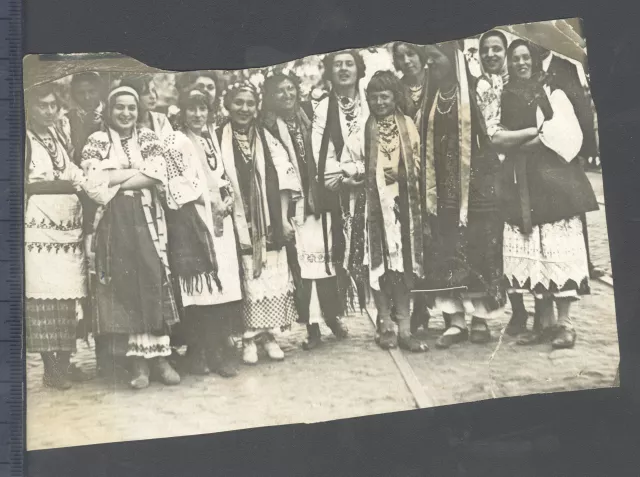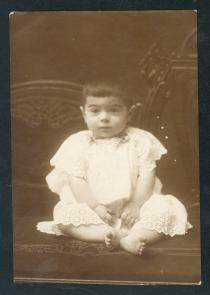This is me in 1955 in Leningrad.
I rented a room in a private apartment in Sverdlovsk. My husband to be lived in the men’s dormitory in a room for five people. They all left for various places later on. The last one to leave was Arbam Aisikovich Chizhik, a colleague of my husband to be. By the way, he kept proposing us to each other. Once I was planning to go to the cinema with my friend, but she refused. So I offered the ticket to Abram Aisikovich. He sent Alexander Gavrilovich instead, who started to court me. Everyone at the institute, where I worked at the library, noticed that Alexander Gavrilovich was not indifferent to me. I came home from work at 9-10 pm and he already waited for me. In the evening we went for a walk and everybody saw it.
My Russian husband Alexander Gavrilovich Karandin was Leningrad born (he was born in 1898) and bred. His parents also came from Leningrad and in 1912 built a house in the suburbs of St. Petersburg, in Sablino. Alexander Gavrilovich got university education and worked as an engineer at GIPKH [State Institute of Applied Chemistry]. My husband’s father was a worker. He died in 1917 and his mother (a housewife) died in 1937. He had three sisters and one brother, who was subjected to repression. My husband’s sisters got on very well with me. My husband was Russian and I decided to stay a Jew thus I did not change my last name. My aunts, who came to visit me, were very much pleased with my husband. However, a fatal tragedy befell our family. I concealed from my husband the fact that our son had a sarcoma. I did not tell him about this disease in order not to upset him, since his mother died of sarcoma. His nephew also died of this disease. My son finished school, entered the LEEI, Leningrad Electrical and Engineering Institute (part-time faculty). He served in the Army between 1964 and 1967. When he returned from the Army he worked at the LEEI and studied at the same time. However, at the age of 25 he fell sick very severely and died in 1970. It was a total tragedy for me and we could not do anything to save him.
My husband spent the beginning of the war and the first blockade winter in Leningrad. He was evacuated from Leningrad along the Road of Life in a very grave condition in 1942. He was older than 40 at that time but he looked younger than his age. We got married in 1944 and lived together for 35 years.
We did not really have any wedding. When our baby was born we went to the ZAGS [State institution which registers acts of civil status – birth, marriage, death] and registered our marriage. We did not celebrate the event and had no feast. Our son Kolya, Nikolai, was born in 1945 and weighed only 1.6 kilograms. My pregnancy was very painful and I had to stay at the hospital all the time. The labor was very difficult and nobody hoped that I would give birth to a baby. There were no gifts because everyone had thought I would die. I had nothing to swaddle the baby into. Later on my husband’s sisters sent us some clothes. I quit my job in Sverdlovsk after my son was born. In 1947-1948 I worked as a librarian at the Sverdlovsk Musical College. My son, Nikolai Alexandrovich Karandin, was not raised as a Jew. He understood his identity as a Jew on his mother’s side, but he was more attracted by the Russian Orthodoxy. He lived in Leningrad, finished the Electrical and Engineering Institute and worked there for some months as a laboratory assistant. But he died in Leningrad in 1970 of sarcoma.















